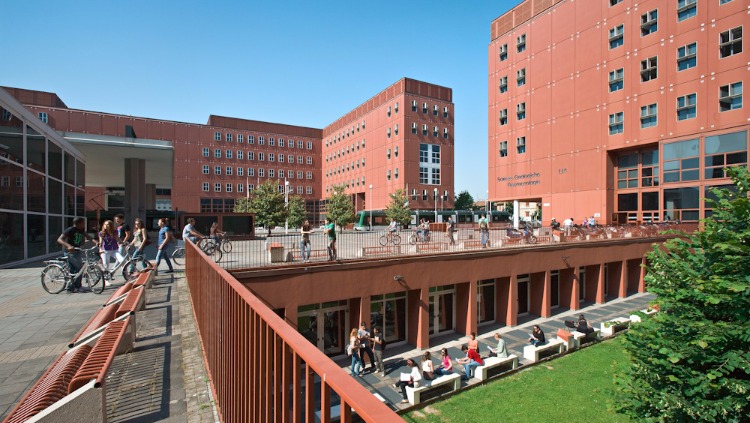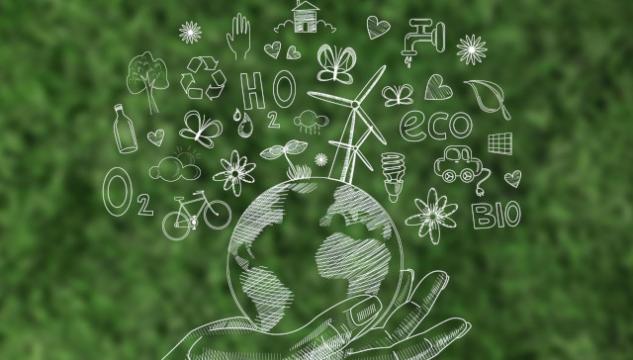Economics and Technologies for Sustainability (ETS)
Corso di laurea Magistrale
The approval process for the Master's Degree program in Economics and Technologies for Sustainability is not yet complete. The program will be activated in the academic year 2025-2026 provided that the procedure concludes positively. All information reported on this website (e-Learning and Online Teaching) regarding the Master's Degree program in Economics and Technologies for Sustainability should be considered provisional and subject to approval by the competent authorities.
The “Economics and Technologies for Sustainability” master’s degree is an interdisciplinary program addressing global challenges through a blend of economics, technology, and sustainability principles. It focuses on equipping students with skills to tackle pressing issues such as resource scarcity, energy challenges, the transition to a sustainable production, circular economies, and strategies to identify and economically valorize sustainability implementations, and the socio-political aspects of sustainability and its realization.
The program emphasizes both theoretical understanding and hands-on experience through specialized labs, with
both formats building on modern didactic concepts that aim at a student involvement at unprecedented levels.
Graduates will enter the world of work as “Sustainability Specialists” or “Tech-Economists,” professionals capable of bridging economic and technological solutions for sustainable development within private companies, public sectors, and as consultant.
Admission requires prior knowledge in economics, science, or related disciplines, ensuring students have a strong foundation in fields like basic microeconomica and macroeconomics, statistics, general biology and chemistry, and general geology.

Location
Milano

Language
English

Places
No limitation

ECTS
120
Acquired competences
Students are offered a wide range of courses that allow them to flexibly acquire competences that will enable them to work as Sustainability Specialist in three contexts in which realising sustainability is key for a sustainable future.
Competences in ‘Economics and business-economics’:
- data analysis, including use of artificial intelligence (AI) in the fields of data management;
- theoretical and practical notions of statistical modelling, statistical learning and simulations;
- game theory, auction theory, choice under uncertainty;
- business activities in the context of the environmental, social, and governance (ESG) transformation;
- Life Cycle Assessment (LCA) and measurement of the social and environmental impacts;
- innovation and business strategies, sectoral models of innovation, analysis of the patent market, innovation and intellectual property rights;
- historical and modern technologies used to define, describe and measure environmental sustainability.
Competences in ‘Resources and Production’:
- distribution and quantities of renewable and non-renewable resources and exploitation strategies;
- sustainable production and resource exploitation in circular economy contexts;
- practical application of the concepts of bioprospecting and bio-inspired in sustainable production;
- adapting production and energy processes to the environmental limits of the Earth system and the availability of energy and resources.
Competences in ‘Energy’:
- technical skills regarding renewable energy, energy transformations, energy storage, batteries;
- methods, tools, devices and technologies for the use of renewable energy and sustainable energy sources;
- models and concepts regarding carbon neutrality, carbon negativity, and carbon sequestering.
Transversal competences:
- communicating sustainability depending on the training of the interlocutors;
- understanding the social aspects related to the achievement of environmental sustainability;
- identifying potential and existing legislative conflicts that may emerge from environmental sustainability implementations.
Career opportunities
The master’s course aims at a high employment rate with access to positions of higher and high responsibility. Career opportunities emerge both in the public and private sectors:
- companies and public bodies that need or want to improve their environmental impact;
- companies and bodies that work in the area of description and quantification of environmental sustainability through the development of models and methods, including digital ones;
- companies or bodies that deal with the certification of environmental sustainability;
- companies in the area of resource exploitation;
- companies in the area of production of goods and services;
- companies in the area of material recycling, both raw materials and complex materials or goods such as batteries or electronic devices;
- companies or bodies that deal with the evaluation and certification of sustainability measures in the production sector;
- companies that produce energy systems and/or devices for its storage;
- consultant to private companies or public bodies regarding the choice of a type of sustainable energy, the most suitable storage techniques, and the development energy plans;
- consultant to public bodies regarding the communication of sustainability within and across groups of interests, and regarding the realization of sustainability in city planning.
Teaching offer
Common subjects (mandatory courses)
76 ECTS
Advanced data analysis and statistics 6ECTS
Business Strategy and Advanced Corporate Finance for Sustainability 12ECTS
Planetary boundaries as basis for sustainability concepts 12ECTS
Environmental economics and regulation 12ECTS
Science and economics of renewable and non-renewable resources 12ECTS
Further linguistic knowledge 3ECTS
Stage 6ECTS
Final examination 13ECTS
Transversal contexts (student's choice)
up to 8 ECTS
Sustainability and biodiversity 6ECTS
Sustainability and One Health 6ECTS
Towards carbon negativity 6ECTS
Human ecology 6ECTS
Communicating sustainability 6ECTS
Urban planning and policies 6ECTS
Subjects for context ‘Economics and business-economics’ (mandatory choice and/or free choice)
up to 38 ECTS
Sustainability scenarios & modelling 8ECTS
Innovation and technology management 8ECTS
Socio-economic vs. scientific aspects of local sustainability measures and
industrial plants 8CTS
Entrepreneurship and business
planning 6ECTS
Data management and synthetic indicators for sustainability 6ECTS
Subjects for context ‘Resources and Production’ (mandatory choice and/or free choice)
up to 38 ECTS
Technologies for sustainable production 8ECTS
Technologies for circular economy 8ECTS
Safe & sustainable by design 8ECTS
Urban mining - opportunities and limits 6ECTS
Understanding sustainable management of industrial water 6ECTS
Subjects for context ‘Energy’
up to 38 ECTS
Renewable energy sources: from technologies to applications 8ECTS
Energy storage and conversion: from technologies to applications 8ECTS
Physics for sustainable energy 8ECTS
Renewable energy technologies 6ECTS
Scholarships for international mobility are available.
Why Choose Bicocca
Here’s what makes us unique
- A cutting-edge University in innovation, teaching, and research, with a strong focus on the environment and sustainability
- A dynamic, inclusive and young campus
- Numerous opportunities for studying and internships abroad through international mobility programs
- Modern laboratories and educational facilities
- Technology-equipped classrooms to ensure the best learning experience, even remotely

